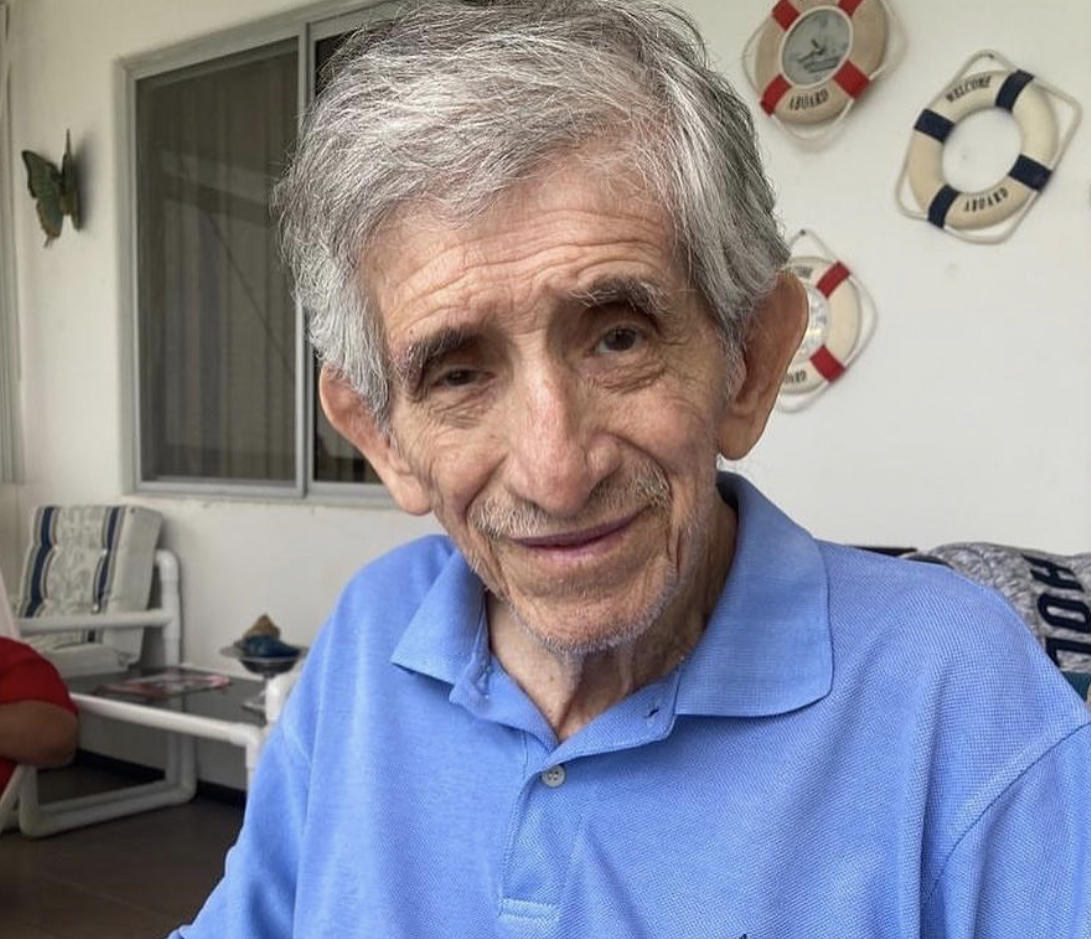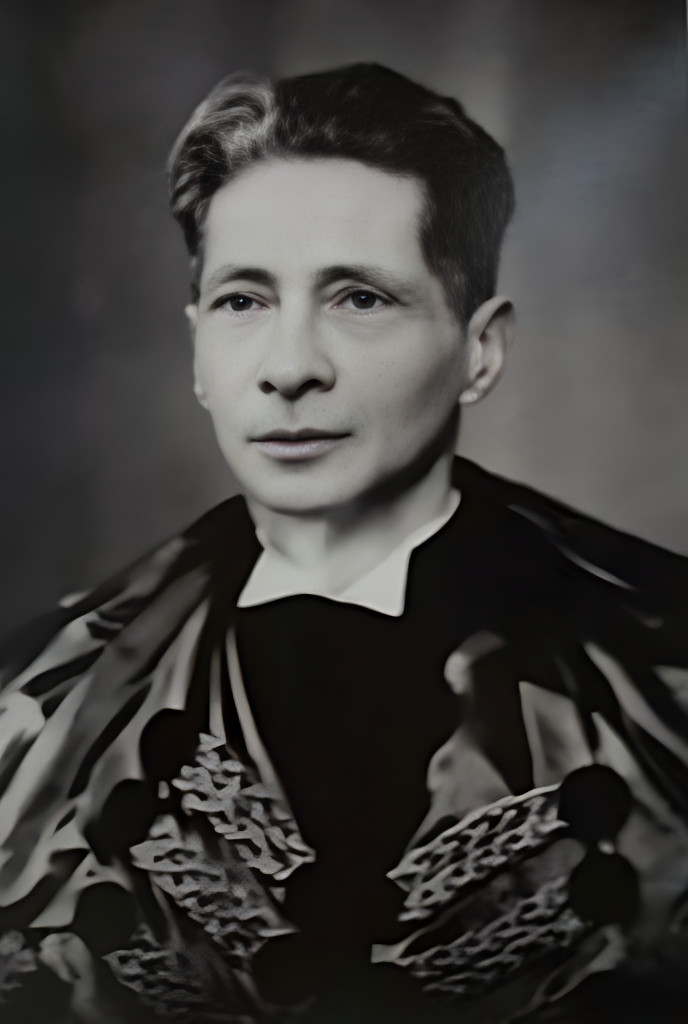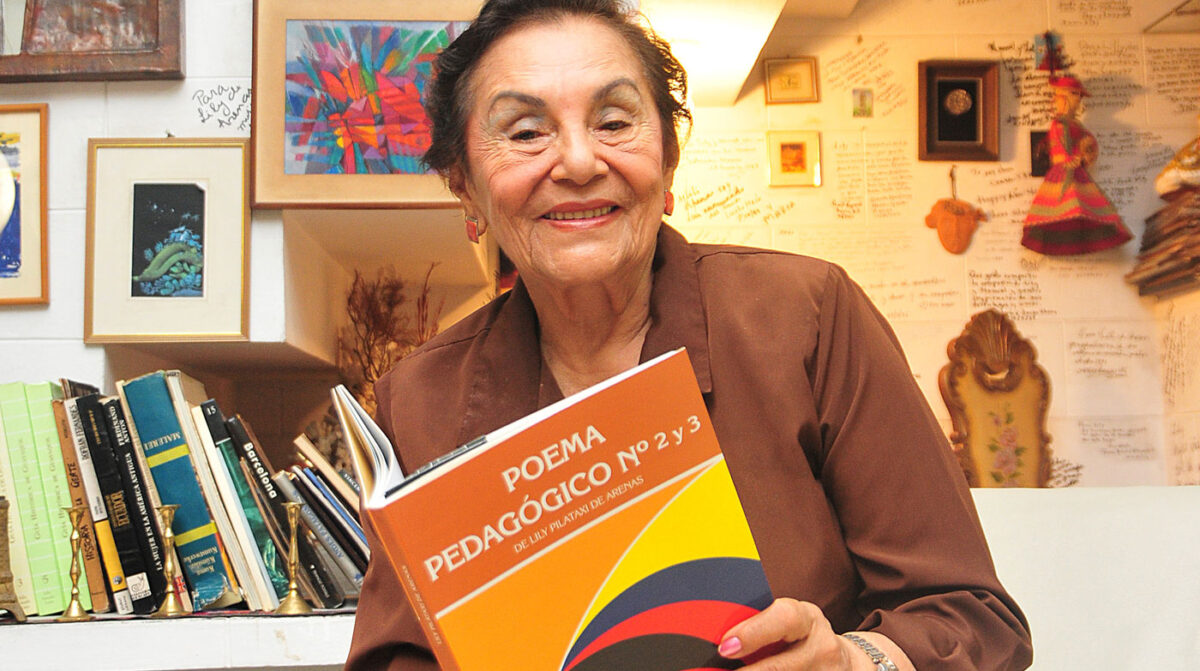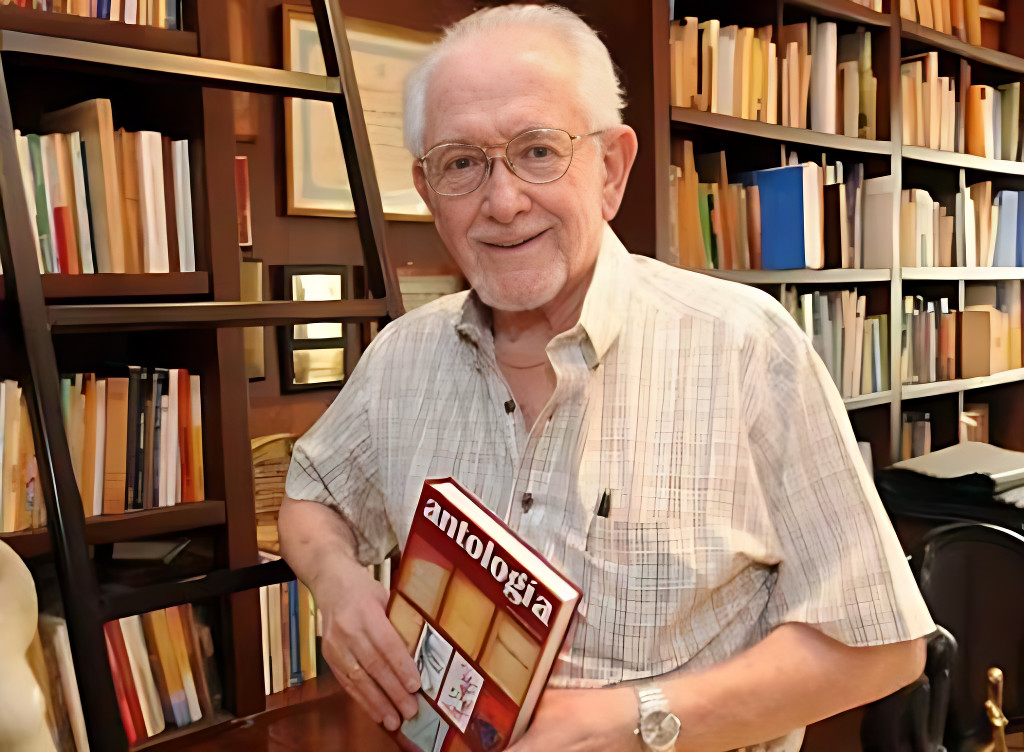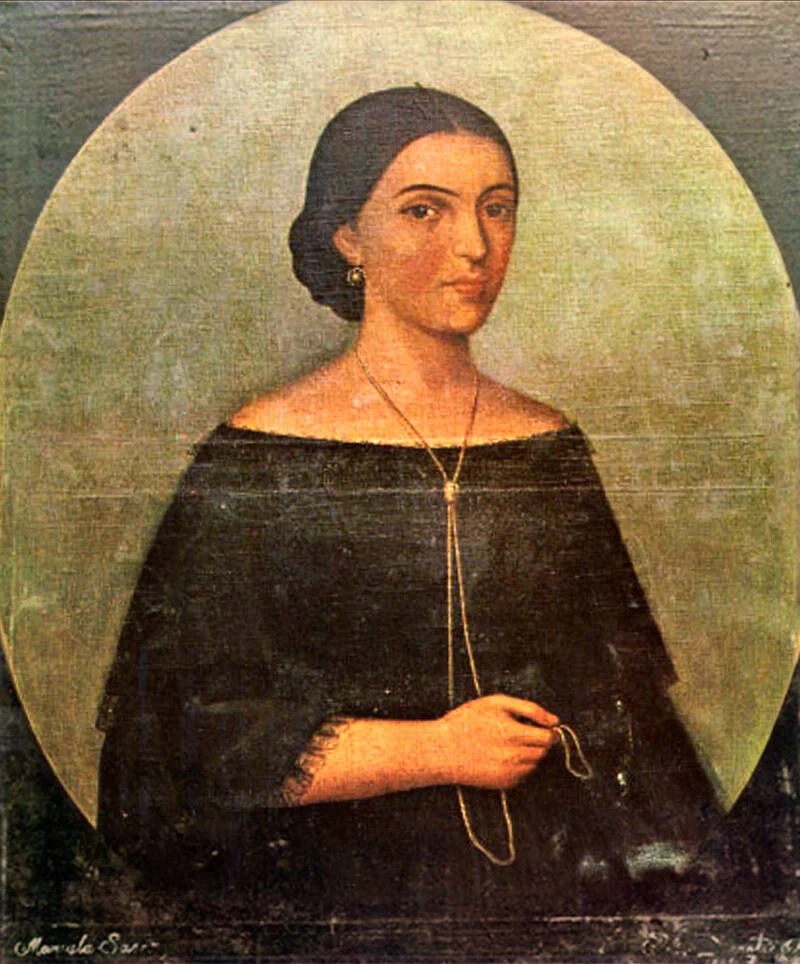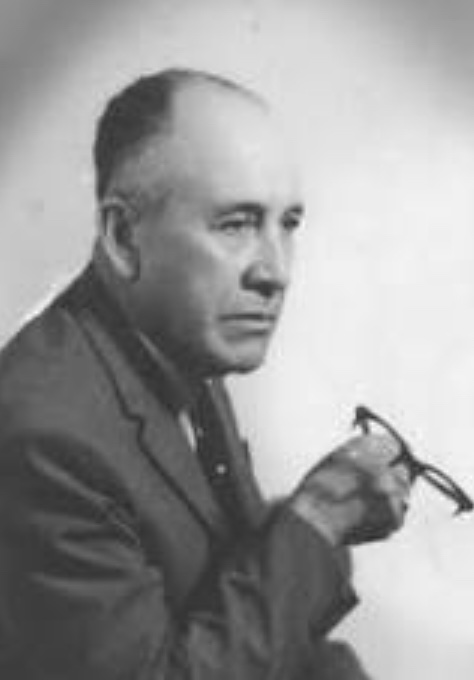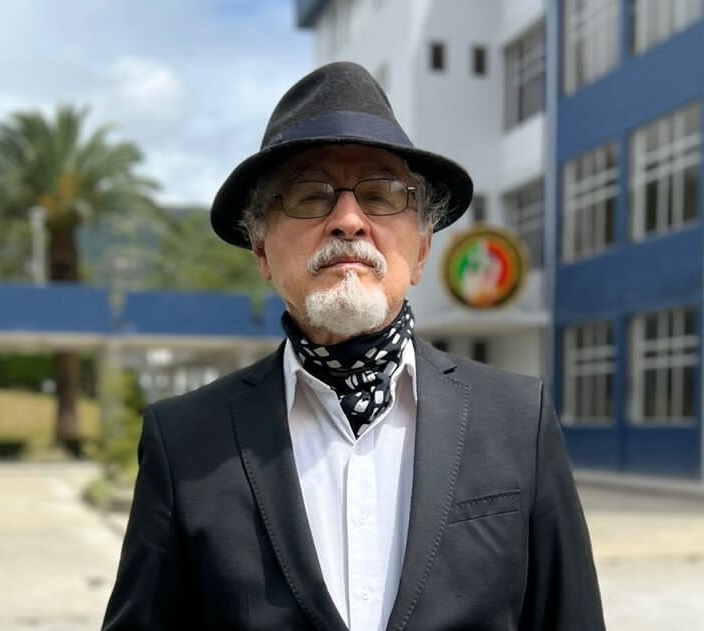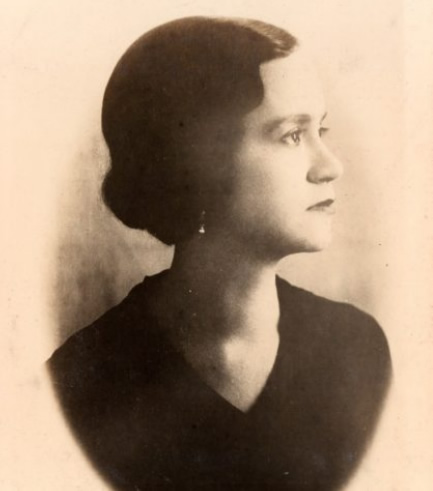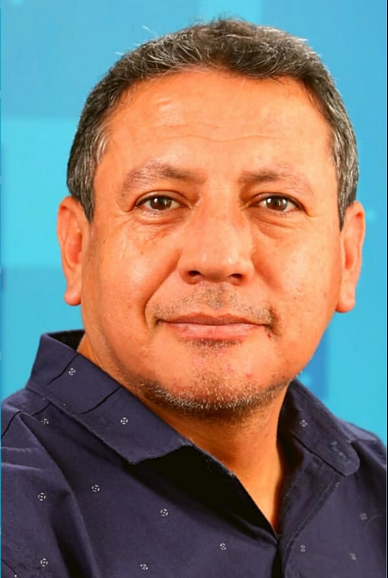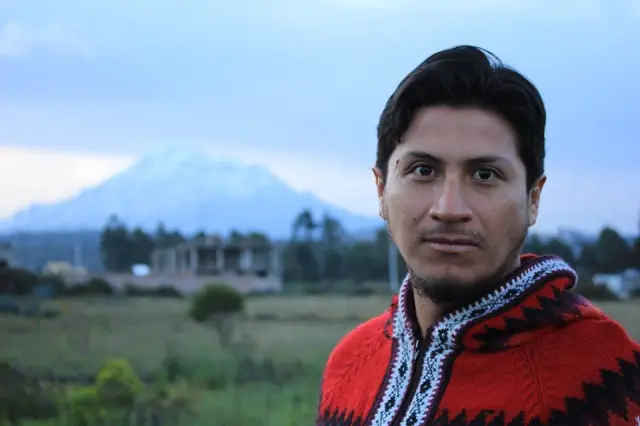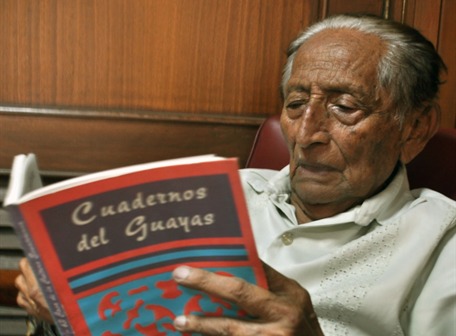Translated to English by Richard Gabela on April 18, 2023, from the original work “La identidad para el olvido” by Teodoro Vanegas Andrade (1926-2002) of Cuenca, Ecuador. I have translated the title of the poem as “Identity for Oblivion.”
Continue reading “Identity for Oblivion by Teodoro Vanegas Andrade”Author: richard
Luis Delgadillo
Luis Delgadillo Avilés (Guayaquil, 1942 – September 13, 2022) was an Ecuadorian poet and journalist. He was part of a group of poets dubbed, “Generación Huracanada” [Hurricane Generation]. In 1971, he won the third national poetry prize. His poetry books include: “El rayo que ilumina” (1971), “Poemas de la marcha” (1977), and “Carta para un hijo y otros poemas” (1997). His non-fiction books include: “Leonardo Escobar Bravo, El ministro de los campesinos” (2006) and “La pepa de oro y el montubio” (2007), which focused on themes of the peasant class. He was a member of the literary section of the House of Ecuadorian Culture in Guayas.
Continue reading “Luis Delgadillo”De Plácido e Silva
Oscar Joseph de Plácido e Silva, known as De Plácido e Silva (Marechal Deodoro, Brazil, June 18, 1892 – Curitiba, Brazil, January 16, 1963) was a Brazilian jurist, writer, editor, translator, publisher, teacher, and businessman. In 1939, he founded and directed a publishing house, Editora Guaíra, headquartered in Curitiba, Brazil. In 1940, he created the publishing house’s Estante Americana collection which was the first to feature Hispanic American novels by neighboring countries. The famous Brazilian novelist and translator, Jorge Amado, was asked for title suggestions and acted as a sort of unofficial director of the collection. Due to its powerful social critique, Amado recommended the inclusion of “Huasipungo,” a 1934 novel by Ecuadorian author Jorge Icaza. De Plácido e Silva translated and edited “Huasipungo” into Portuguese and wrote the preface for the book, which was dated June 1941. It was the book’s first-ever Portuguese translation; since then, two additional Portuguese translations have been made. It is worth noting that the collection’s most successful works were “Doña Bárbara,” by Venezuelan author Rómulo Gallegos (translated by Jorge Amado in 1940) and “Huasipungo” by Ecuadorian author Jorge Icaza (translated by De Plácido e Silva in 1941). A school in Pinhais, Brazil, “Colégio Estadual Oscar Joseph D’Plácido e Silva,” established in the year 2000, was named in his honor.
Continue reading “De Plácido e Silva”Lily Pilataxi de Arenas
Lily Pilataxi de Arenas (Guayaquil, 1930) is an Ecuadorian author of children’s literature, poet, writer, journalist, diplomat and educator. As a feminist and advocate of women’s rights she authored “La Mujer y sus Derechos” [Women and their Rights] (1990). She has taught in Ecuador and Germany, and most recently served as rector of the Educational Unit Steiner (Unidad Educativa Steiner) in Guayaquil. Her teaching experiences in Germany (from 1963 to 1978) are chronicled in “Poema pedagógico No 2 y 3” [Pedagogical Poem Nos. 2 and 3]. Perhaps her most popular children’s story is “Doña cucaracha y la bolita de nieve” [Don︣a Cucaracha and the Snowball] (2010) which was translated into English, Geman and French. She has received numerous honors both inside and outside of Ecuador. She was awarded and designated an honorary member of The International Society of Poets, Writers, and Artists (SIPEA). As a journalist, she wrote an opinion column for El Universo newspaper for 30 years, and was also an opinion columnist for El Telégrafo. She has given lectures in the United States, Europe and Africa.
Continue reading “Lily Pilataxi de Arenas”Francisco Pérez Febres-Cordero
Francisco Pérez Febres-Cordero (Guayaquil, July 18, 1934 – Ibidem, August 31, 2010) was an Ecuadorian poet and journalist whose distinguished career at El Universo newspaper lasted four decades (1958-1998). Among his many accomplishments at El Universo was the creation of the Ismael Pérez Pazmiño Poetry Contest in 1959, which is regarded as one of the most prestigious poetry awards in Ecuador. He authored several poetry books, beginning with “Polvo de estrellas” [Star Dust] in 1951. His “Obras completas” [Complete Works] was published posthumously in 2020. From 1992 to 1998 he was Vice-director and Chairman of the Board of El Universo. In 1998, the year he retired from El Universo, he and one of his sons launched a bookstore named El Librero inside the Ríocentro Ceibos Mall, which, in 2008, they sold to the Librimundi group. In 2012, a bust of him was erected on “Avenida del Periodista” (Avenue of the Journalist) in Guayaquil.
Continue reading “Francisco Pérez Febres-Cordero”Manuela Sáenz
Manuela Sáenz Aizpuru de Thorne, commonly known as Manuelita Sáenz (Quito, Ecuador, during the Spanish Empire, December 27, 1797 – Paita, Peru, on November 23, 1856) was a noblewoman, political activist, and heroine in the fight for independence from Spain. Although she did not publish her writings during her lifetime, she did leave behind a significant amount of correspondence, including letters to Simon Bolívar, which provide valuable insight into her life and her role in the struggle for independence. Sáenz became involved in the revolutionary movement at an early age and was the lover and confidante of Simón Bolívar before and during the war for independence. She was instrumental in saving Bolívar’s life on at least one occasion, which led Bolívar to give her the title “Libertadora del libertador” [Liberator of the Liberator]. She accompanied him on many of his campaigns and was present at the Battle of Ayacucho, which marked the end of the Spanish presence in South America. After the war, Sáenz was granted the Order of the Sun or “Dame of the Sun” [Caballeresa del Sol] for her role in the struggle. However, her political activities and her unconventional personal life, which included several affairs, made her the target of criticism and condemnation by many in the conservative society of the time. She ultimately died in exile and poverty. Nevertheless, her legacy as a revolutionary and a feminist icon has endured, and she is remembered today as a symbol of the struggle for independence and women’s rights in South America. She has been the subject of many books in and outside of Ecuador.
Continue reading “Manuela Sáenz”Justino Cornejo
Justino Cornejo Vizcaíno (Puebloviejo, Los Ríos, Ecuador, August 9, 1904 – Guayaquil, July 24, 1988) was a writer, educator, linguist, folklorist and scholar of Ecuadorian culture. He was a socialist and several times jailed at protests or by orders of Ecuadorian presidents. He published many articles in newspapers such as El Mercurio, El Día, Expreso, and El Telégrafo. He belonged to 22 foreign and 12 national institutions. In addition, he received twelve decorations, including that of Commander of the Order of Prince Henry (Ordem do Infante Dom Henrique) conferred by the President of Portugal. Some of his notable books include: “Diccionario del hampa guayaquileña” [Guayaquilean Underworld Dictionary] (1953), “Lengua i folclore” [Language and Folklore] (1963), and “El Quichua en el Castellano del Ecuador” [Quichua in Ecuador’s Spanish] (1967), to name a few. His complete works were published in 1989. Since then, previously unpublished works have been released, such as “Celda carcelaria” [Jail Cell] (2002), in which Cornejo writes about his experiences during his 90-day imprisonment in 1953 on the orders of Ecuadorian President José María Velasco Ibarra, who accused him of attempting to destabilize his government as an editorialist for La Nación newspaper. From 1946 until his retirement in 1968 he was a professor of Spanish and literature at the University of Guayaquil. In 1950, he became a member of Ecuador’s Academy of Language.
Continue reading “Justino Cornejo”Carlos Carrión
Carlos Alfonso Carrión Figueroa (Malacatos, Loja, January 25, 1944) is an Ecuadorian novelist and short story writer. He has won several prestigious literary awards, including the José de la Cuadra Award for his 1982 short story collection “El más hermoso animal nocturno” [The Most Beautiful Nocturnal Animal], the Joaquín Gallegos Lara Award twice, first for his 1995 short story book “El corazón es un animal en celo” [The Heart is an Animal in Heat] and later for his 2005 novel “¿Quién me ayuda a matar a mi mujer?” [Who’ll Help Me Kill My Wife?], which also earned him the “Lira y la Pluma” Award. Additionally, his work has been featured in various anthologies. In 2013, he won the Miguel Riofrío Award for his novel “La mantis religiosa” [The Praying Mantis]. Recently, in 2022, Carrión was honored with the Eugenio Espejo National Prize, the highest literary recognition in Ecuador.
Continue reading “Carlos Carrión”Matilde Hidalgo de Prócel
Matilde Hidalgo de Prócel (Loja, September 29, 1889 – Guayaquil, February 20, 1974) was an Ecuadorian physician, poet, and activist who was a pioneer for women’s rights in Ecuador and Latin America, becoming the first woman to vote in the country and the continent in 1924. As a doctor, she also became the first woman to earn a Doctorate in Medicine in Ecuador, using her platform to fight for women’s rights and improve healthcare for women and children. She was an active member of feminist organizations and expressed her views through poetry. Her legacy as one of the most important women in Ecuadorian history endures, inspiring future generations to fight for gender equality. Matilde Hidalgo was honored by Google on November 21, 2019, with a Google Doodle commemorating what would have been her 130th birthday.
Continue reading “Matilde Hidalgo de Prócel”Bertha Cando de Izurieta
Bertha Cando de Izurieta, also known as Bertha de Izurieta, was an exceptional Ecuadorian writer and journalist hailing from Cotopaxi. She broke barriers as the founding director of Cotopaxi Province’s very first newspaper, El Cotopaxi, which graced readers’ hands from July 24, 1959, until February 22, 1960. In 1962, she became Ecuador’s first-ever female President of a Municipal Council in the town of Saquisilí located in the Cotopaxi Province. Her husband, Gustavo Izurieta Obando, was the deputy director and proprietor of the publishing house, “Editorial Minerva.” Their son, Gustavo Izurieta, also took the reins as director for a few months. In 1954, Bertha’s novel, “Juventud inmolada” [Immolated Youth], was released under the banner of their publishing house.
Continue reading “Bertha Cando de Izurieta”Matilde de Ortega
Matilde Cabeza de Vaca de Ortega, known in the literary world as Matilde de Ortega, was an Ecuadorian writer. Her epistolary novel, “Lo que deja la tarde” (1955), is the sixth novel ever authored by a woman in Ecuador and the first by a woman to be published by the House of Ecuadorian Culture (CCE). In his 1976 study entitled, “Amazons and Artists: A Study of Ecuadorian Women’s Prose, ” American literary critic Michael Handelsman described her novel as: “the story of a woman who desires greater freedoms within the traditional framework of female life in Ecuador.” From 1957 to 1959, she served as the director of the CCE’s publishing house. In 1980, a short story by Ortega entitled, “El coche,” was published in an anthology entitled, “Cuentos fantásticos hispanoamericanos.”
Continue reading “Matilde de Ortega”Mario Conde
Mario Conde (Ambato, 1972) is a highly accomplished Ecuadorian writer, renowned for his works in children’s and youth literature. In addition to his successful writing career, he is also a distinguished university professor of Latin American Literature. Throughout his career, Mario has published numerous novels and volumes of short stories in collaboration with a variety of esteemed publishers such as Grupo Editorial Norma, Alfaguara Juvenil, Santillana, Loqueleo, SM el Barco de Vapor and Abracadabra Editores. In recognition of his literary achievements, he was awarded the prestigious Alicia Yánez Cossío Prize by the provincial government of the Pichincha province in 2003. With his remarkable talent, Mario has left an indelible mark on the Ecuadorian literary landscape and continues to inspire future generations of writers.
Continue reading “Mario Conde”Cristian Cevallos de la Torre
Cristian Cevallos de la Torre is an Ecuadorian writer. In 2022, at twelve-years old, he published a 113-page story, “Peterson Chase y un caos gigante” [Peterson Chase and a Giant Chaos], which he began writing at the age of 7. The book, which is also available in English, is full of magic, fantasy and adventure. It was published by Lux et Gaudium, a publishing company created by his mother Ana de la Torre to release his book. Among those who accompanied him during the book’s launch presentation were former Ecuadorian Vice President and writer Rosalía Arteaga and the award-winning Argentine poet and writer Ernesto Kahan. Cevallos intends to write a sequel to his book.
Continue reading “Cristian Cevallos de la Torre”Freddy Ayala Plazarte
Freddy Ayala Plazarte (Aláquez, Latacunga, Ecuador, 1983) is an Ecuadorian poet, essayist, and university professor. In 2015, his poetry book “Rebeliones al filo de una sinfonía” won the prestigious Jorge Carrera Andrade National Poetry Prize. His latest poetry book, “Un siglo en el vientre de las vasijas” (2021) was a finalist of the 2nd edition of the Vicente Huidobro International Poetry Award, Valparaíso. He has written several literary studies, including “Vientos paralelos: acotaciones sobre cultura y literatura latinoamericana” (2015) and two studies on poet Hugo Mayo. He was a member of the literary workshops at the House of Ecuadorian Culture during 2005-2007. He was a member of the literary group la.kbzuhela of Quito. He is a professor at the Central University of Ecuador.
Continue reading “Freddy Ayala Plazarte”Cristóbal Garcés Larrea
Cristóbal Garcés Larrea (Guayaquil, April 20, 1924 – May 2017) was an Ecuadorian poet, editor, and literary critic. He was the editor-in-chief of Cuadernos del Guayas, the official magazine of the Guayas chapter of the House of Ecuadorian Culture, which was created by Carlos Zevallos Menéndez and whose prior editors-in-chief were Adalberto Ortiz and Francisco Pérez Febres Cordero (albeit for short periods). In 1944, he and Galo René Pérez, Jorge Enrique Adoum and Enrique Noboa Elizaga published the literary magazine Madrugada. In 1970, he released a book series that included stories by then-contemporary writers from certain Latin American countries or regions (which he compiled and edited), including: “Narradores Centroamericanos Contemporáneos,” “Narradores Cubanos Contemporáneos,” “Narradores Colombianos Contemporáneos,” and “Narradores Brasileños Contemporáneos.” He published several of his poems in magazines in Ecuador but a collection of his poems has never been published as a book. He worked for many years as a professor.
Continue reading “Cristóbal Garcés Larrea”
